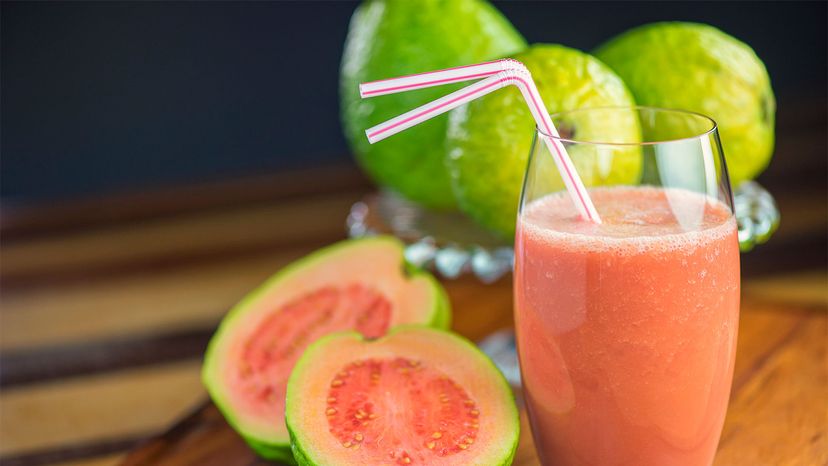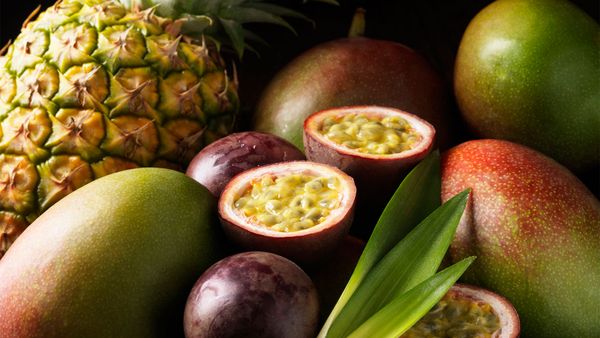
Apples, oranges and bananas are delicious and all, but people who've hit a bit of a fruit rut might want to consider more exotic selections to reignite bored palates. One of the fruits gaining in popularity is guava, which grows in tropical and subtropical regions around the world.
Although guava is now produced in places such as Africa, the Caribbean, the warmer parts of the U.S. (like Florida and California), India, and even the Pacific Islands, the plant is believed to be native to Southern Mexico and Central America. Its seed spread to so many parts of the world, thanks to the movement of birds, animals and people throughout the centuries. This has resulted in a booming international guava industry that includes fresh, canned, dried, juiced and concentrate varieties.
Advertisement
Guava pastes, cheese and jellies are beloved sweet treats, and the fruit is often used in desserts like pies, cakes and pastries, and as well as a flavoring for ice cream. Even guava leaves serve multiple purposes, as they're often used to brew teas and create health supplements.
Guava is a soft, creamy fruit with a tart-but-sweet flavor that can have a little gritty mouthfeel. Although it resembles a green apple (earning it the nickname "apple guava"), the inside can vary in color from dark pink to white and in between. The fruit has a very pleasant flowery smell. Guava can be sliced up and eaten raw by itself, or else juiced or used as a topping for salads or ice cream.
Advertisement

